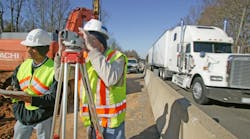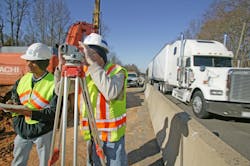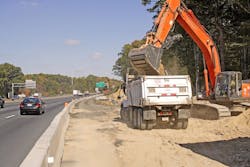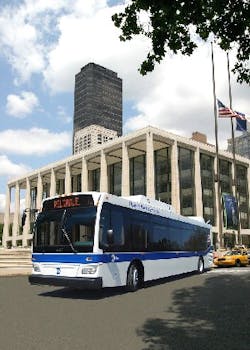Given an extremely grandiose title – What Do Americans Think about Federal Tax Options to Support Public Transit, Highways, and Local Streets and Roads? Results from Year 3 of a National Survey– the report gathered data from a representative U.S. population sample of 1,519 people earlier this year, asking them if they would support various tax options for raising federal transportation revenues, with a “special focus” on trying to pinpoint what would motivate people to support increased revenues for public transit.
This study also compared the results from this poll to two other similar surveys conducted in 2011 and 2010 to determine if attitudes among the general populace shifted on any of the issues and why.
The study’s authors – Asha Weinstein Agrawal, Hilary Nixon, and Vinay Murthy – noted the primary reason behind this undertaking is to provide public officials with a “window” on public sentiment regarding taxation and transportation, especially as the U.S. transportation network continues to suffer (in their opinion) from a dearth of funding.
"Over several decades, the transportation revenues from state and federal fuel taxes have fallen significantly, especially in terms of inflation-adjusted dollars per mile traveled," noted Agrawal in written remarks. "At the same time, the transportation system requires critical and expensive upgrades. This dilemma means that the U.S. must dramatically lower its goals for system preservation and enhancement, or new revenues must be raised.”He added if the latter is to happen, legislators must be convinced that increasing taxes or fees is politically feasible. “When legislators decide whether to raise new revenues, they must consider likely public support for – or opposition to – raising different kinds of taxes,” Agrawal said. “This report helps them understand public sentiment.”
Not surprisingly, then, the Mineta consortium report (which, by the way, runs to 100 pages with all sorts of mind-numbingly detailed appendices and charts) finds that in many cases the average citizen is conflicted when it comes to taxation policies in regards to transportation:
- The survey results show that a majority of Americans would support higher taxes for transportation but only under certain conditions. For example, a gas tax increase of 10 cents per gallon to improve road maintenance gained the support of 58% of the respondents. However, support plummeted to 20% percent if that tax revenue would only be “used more generally” to maintain and improve the transportation system.
- Another gas tax variant that received at least 50% support in the 2012 survey centered on a 10 cent per-gallon increase for revenues dedicated to reducing accidents and improving safety.
- For tax options where the revenues were to be spent for undefined transportation purposes, support levels varied considerably by what kind of tax would be imposed, with a sales tax (49% approval) much more popular than either a gas tax increase (20%) or a new mileage tax (21%).
- In fact, survey results from all three years demonstrate that “mileage fees” are very unpopular under most scenarios, in the very low 21% support range for even a flat one cent per mile tax option.
- Looked at in total over the past three years, American public opinion has changed little when it comes to transportation taxation options, with the 2012 survey finding Americans about as willing to support tax increases for transportation as they were in 2010 and 2011.
Now, how does John Q. Public view public transit these days? More importantly, where does public transit rank in terms of the worthiness of tax dollars?
For starters, the Mineta consortium found that the majority of respondents (60%) said that transit service is very or somewhat good, 16% said that it is poor, and 24% said either that there is no service in their community or that they didn’t know.In terms of prioritizing transportation funds, though, things become quite clear. For example, expanding and improving local public transit service got noted as a high priority for almost half of respondents (45%), but this was the lowest percentage among the five priorities tested. Perhaps unsurprisingly, the two most popular priorities for transportation funds were road maintenance and improving safety, rated at 95% and 81%, respectively.
“The 2012 questions exploring different methods to raise new revenues for expanding and improving public transit found relatively low levels of support for all of them,” the report concluded. “Policymakers seeking new funding for public transit will likely find that their programs are similarly popular to more traditional priorities like reducing traffic congestion, but nevertheless face the same obstacles as other transportation programs in finding new tax revenue sources.”
Still, I think one of the biggest takeaways from this bulky report is a confirmation of the obvious: if taxes are raised for a SPECIFIC transportation purpose, such as maintaining current roads or building new ones, by and large John Q. Public will support it. But if public officials plan to raise fuel taxes and/or impose new transportation fees with only vague plans on how to spend that money, they’ll most likely hit a stone wall.
Those two conclusions should shock no one – but now at least we’ve got numbers to back them up.






